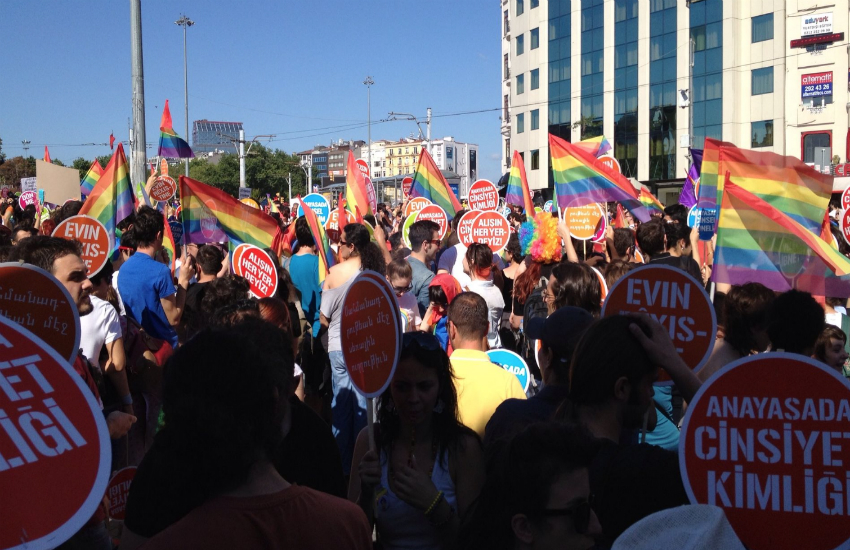Istanbul Pride march in 2012 | Photo: Wikipedia/LoudHmen
LGBTI charity Stonewall and high-street store Primark faced backlash for manufacturing Pride T-shirts in Turkey, a country with a woeful LGBTI-rights record.
LGBTI people living in Turkey face widespread abuse and discrimination.
Critics have said it is unethical and hypocritical for the LGBTI charity and LGBTI-supporting retailer to print Pride merchandise in Turkey for that reason, the Guardian reported.
Many have also noted the irony of having clothing manufactured in a country where it would be illegal to voice the very messages displayed on the clothes.
‘The issue for me is where the message on the T-shirt is printed, in this case it is in Turkey so that for me is fundamentally unethical.’ said Steve Taylor, co-founder of the UK Pride Network and Communications Director at EuroPride.
‘It is unfair to ask people to do the messages in countries where LGBT rights are a pipe dream and we must not do it,’ Taylor added.
Systemic prejudice of the LGBTI community
Turkey is infamous for its widespread and systemic prejudices levied at the LGBTI community.
In a recent ILGA-Europe poll of LGBTI rights of countries in Europe and Western Asia, Turkey was placed third from the bottom. It was positioned two places below Russia – a country notorious for its dreadful record of LGBTI-rights.
Last month, police in Istanbul stormed a Pride, despite the organisers reaching a last-minute agreement with the authorities for the march to go ahead. Police firing rubber bullets and teargas into the crowd, and witnesses claimed ten police officers and a police dog targeted one person in an attack.
In response to the criticism, Louise Smith, director of fundraising at Stonewall UK, said: ‘We work with organisations with offices and operations based around the world to help them support their LGBT staff.
‘In Turkey we are working directly with LGBT rights campaigners to upskill them in practical ways to push forward LGBT equality, including ways to engage positively with local police forces and the broader legal system.’







